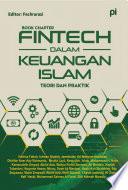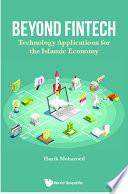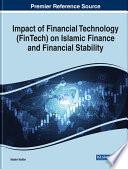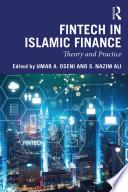
Fintech dalam Keuangan Islam: Teori dan Praktik
Gelombang revolusi dalam teknologi digital yang terus berkembang dengan pesat telah mengubah wajah dunia. Jika dibandingkan dengan sektor lain, kemajuan teknologi digital ini berjalan lebih gesit dan penuh inovatif. Dari aspek yang sederhana saja, dewasa ini jumlah orang yang memiliki telepon seluler (ponsel) mungkin jauh lebih besar daripada mereka yang memiliki akses terhadap listrik atau air bersih. Difusi gelombang teknologi digital telah merangkak masuk ke semua aspek kehidupan dan ekonomi masyarakat dunia, seperti transportasi, kesehatan, pendidikan, ritel, hotel, dan bahkan keuangan. Dalam sektor keuangan, inovasi teknologi sebenarnya bukan merupakan fenomena baru. Antara teknologi dan keuangan, keduanya memiliki sejarah simbiosis mutualisme yang panjang, sehingga secara inheren teknologi keuangan (financial technology), juga bukan merupakan pengembangan baru bagi industri jasa keuangan. Meskipun demikian, intensitas pembahasan dan kajian tentang keduanya cukup tinggi akhir-akhir ini, terutama karena penetrasi fintech itu sangat cepat. Isu tersebut menjadi perhatian banyak pihak pada berbagai level di Indonesia, baik di kalangan pengambil keputusan, akademisi, dan praktisi bisnis keuangan maupun di tingkat publik (masyarakat) sebagai konsumen atau pengguna fintech. Misalnya seperti isu mata uang kripto (cryptocurrency), bitcoin, blockchain. Meskipun telah muncul banyak perhatikan dari kalangan ekonom secara umum terkait fintech, penulis belum banyak melihat diskursus yang mengaitkannya dengan keuangan Islam. Padahal, kaitannya dengan keuangan Islam (Islamic Finance) menarik untuk dibahas, sebab Indonesia merupakan salah satu pasar ekonomi syariah terbesar di Indonesia (katadata.co.id, 2020). Oleh sebab itu, Book Chapter ini hadir untuk memberikan perspektif baru terkait fintech dari sudut pandang keuangan Islam secara komprehensif dari berbagai kalangan akademisi yang terbagi dalam 18 sub pembahasan yang saling terkait. Tujuannya tentu memberikan edukasi edukasi kepada para umat Islam khususnya, dan bagi pelaku pada pasar ekonomi syariah pada umumnya.
- ISBN 13 : 6235257112
- ISBN 10 : 9786235257112
- Judul : Fintech dalam Keuangan Islam: Teori dan Praktik
- Pengarang : Hartina Fattah, Ichwan Riodini, Jamaludin, Sri Wahyuni Hasibuan, Dhidhin Noer Ady Rahmanto, Meutia Layli, Nasrulloh, Ishak, Mohammad H. Holle, Kamaruddin Arsyad, Abdul Aziz, Wahyu Purbo Santoso, Ali Mutakin, Naelati Tubastuvi, Nugraha Hasan, Misno, Dede Aji Mardani, Hasbi Ash Shiddieqy, Edy Setyawan, Wanti Ernawati, Budi Sukardi, Chaidir Iswanaji, M. Zidny Nafi’ Hasbi, Muhammad Salman Al Farisi, Sitti Nikmah Marzuki,
- Kategori : Business & Economics
- Penerbit : Publica Indonesia Utama
- Bahasa : id
- Tahun : 2022
- Halaman : 344
- Google Book : https://play.google.com/store/books/details?id=8sxxEAAAQBAJ&source=gbs_api
-
Ketersediaan :
Gelombang revolusi dalam teknologi digital yang terus berkembang dengan pesat telah mengubah wajah dunia.






